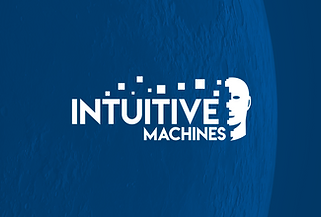
By Jeff Foust,
Published by Space News, 9 August 2025
WASHINGTON — Intuitive Machines has decided to bring in-house the production of satellites for a cislunar communications system, giving the company more schedule control and the ability to pursue other satellite opportunities.
In an Aug. 7 earnings call, Intuitive Machines said it will produce the five satellites for a constellation that will provide communications services around the moon. The company previously said it would acquire the satellites from York Space Systems.

Those satellites will be used for NASA’s Near Space Network Services (NSNS) contract that the company won in September 2024. Building the satellites themselves, executives argued, would give it more control over cost and schedule.
“To execute the NSNS vision with schedule confidence and cost control, we made the strategic decision to vertically integrate satellite production,” Steve Altemus, chief executive of Intuitive Machines, said on the call.
“We believe this model gives us schedule control, safeguards intellectual property, opens access to new markets like Golden Dome and reduces our largest cost driver, launch,” he said.
That cost reduction, he said, will come from launching the satellites on rideshares with its future lunar lander missions. However, the company had previously planned to use rideshares when it was procuring the satellites externally, and he did not elaborate on the cost savings this new approach will offer.
Altemus said that the company looked at satellites from other vendors and concluded they did not have the propulsion and power needed to operate at the moon. “We saw some struggles in the supply chain with that,” he said.
The first satellite will launch with the company’s next lander mission, IM-3. While the lander will complete its final pre-launch review next May, Altemus said the company will hold the launch of IM-3 until that satellite is ready in the second half of 2026.
He said bringing satellite production in-house will save money. However, it will also require some upfront investment. Intuitive Machines won approval last month from Houston officials to expand its existing production facility at Spaceport Houston, on the ground of Ellington Airport. Altemus said the company also just signed a lease for a nearby building that is equipped with production and test facilities.
Pete McGrath, chief financial officer, said the company took a $19.8 million estimate-at-completion adjustment in the second quarter to reflect the impact of bringing satellite production in-house. That includes a $10.1 million reduction in revenue as milestones for the IM-3 mission are delayed to 2026, and a $9.7 million cost increase.
McGrath said later in the call that Intuitive Machines estimated $5 million in non-recurring engineering costs to bring the first satellite through design and development, while Altemus said building all five satellites will cost $100 million.
“Our recurring cost is actually at or below current market numbers,” McGrath said. “Internally, we can be more cost effective, not to mention it allow us to have an internal organic capability that we can now go into other markets with.”
KinetX acquisition
Intuitive Machines announced Aug. 6 that it would buy KinetX, an Arizona company that specializes in deep space navigation and mission design. Intuitive Machines will pay $30 million to buy KinetX with the sale expected to close by the end of the year. KinetX generated $9.8 million in revenue in 2024.
KinetX, Altemus said, “delivers exactly the kind of analysis and real-time decision software that our future network will depend on.” KinetX has worked on a variety of NASA missions, from Mercury to Pluto, and also supported the IM-1 and -2 lander missions.
“We believe it strengthens our position in data transmission, national security space and emerging deep space opportunities, including Mars data relay,” he said of the acquisition.
The experience of KinetX extends to constellation management, supporting Iridium and the military’s MUOS satellite network. “That global satellite constellation management is interesting, and also that precision trajectory and precison navigation in deep space,” Altemus said. “It’s a very, very specialized skill that we have in house but we need more of.”
See: Original Article




